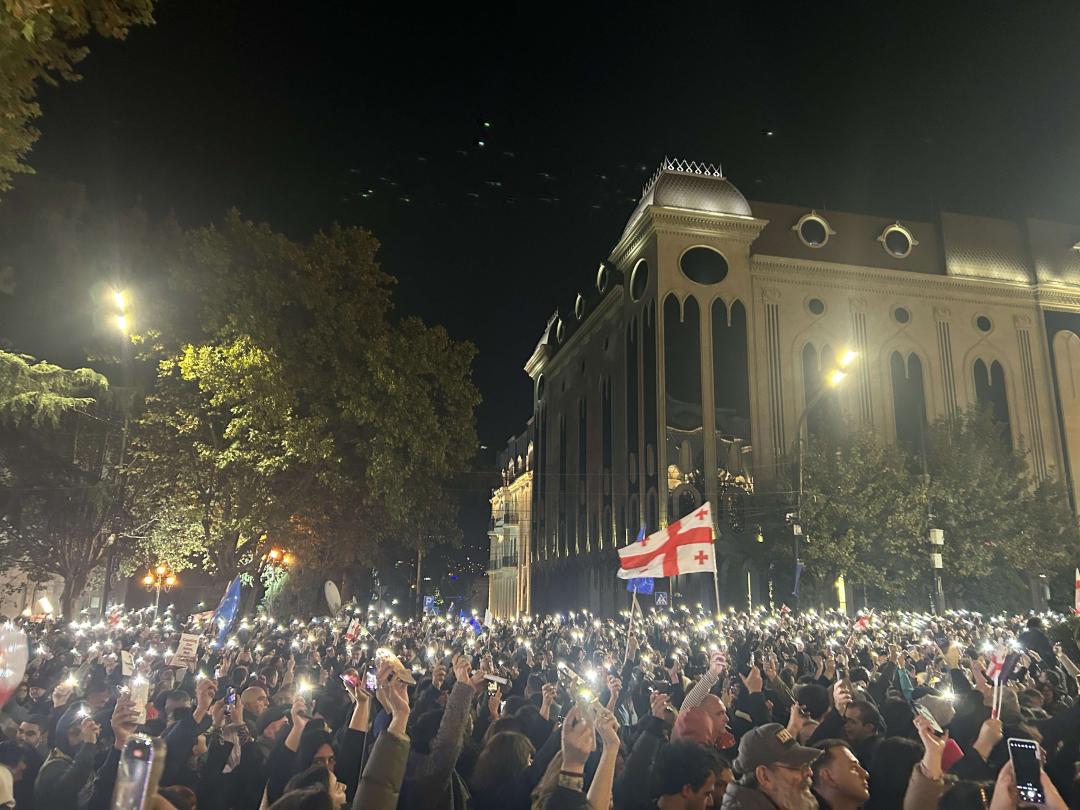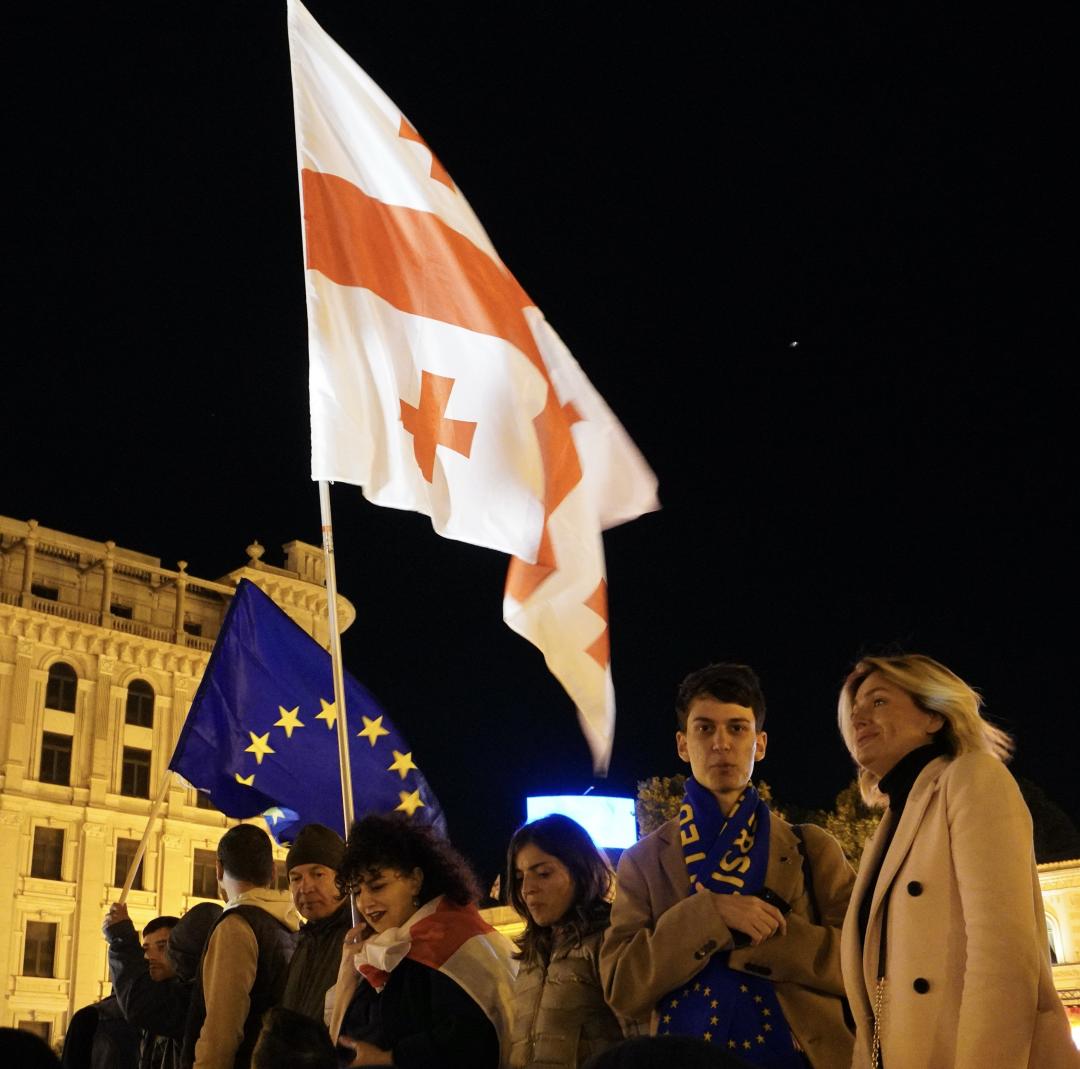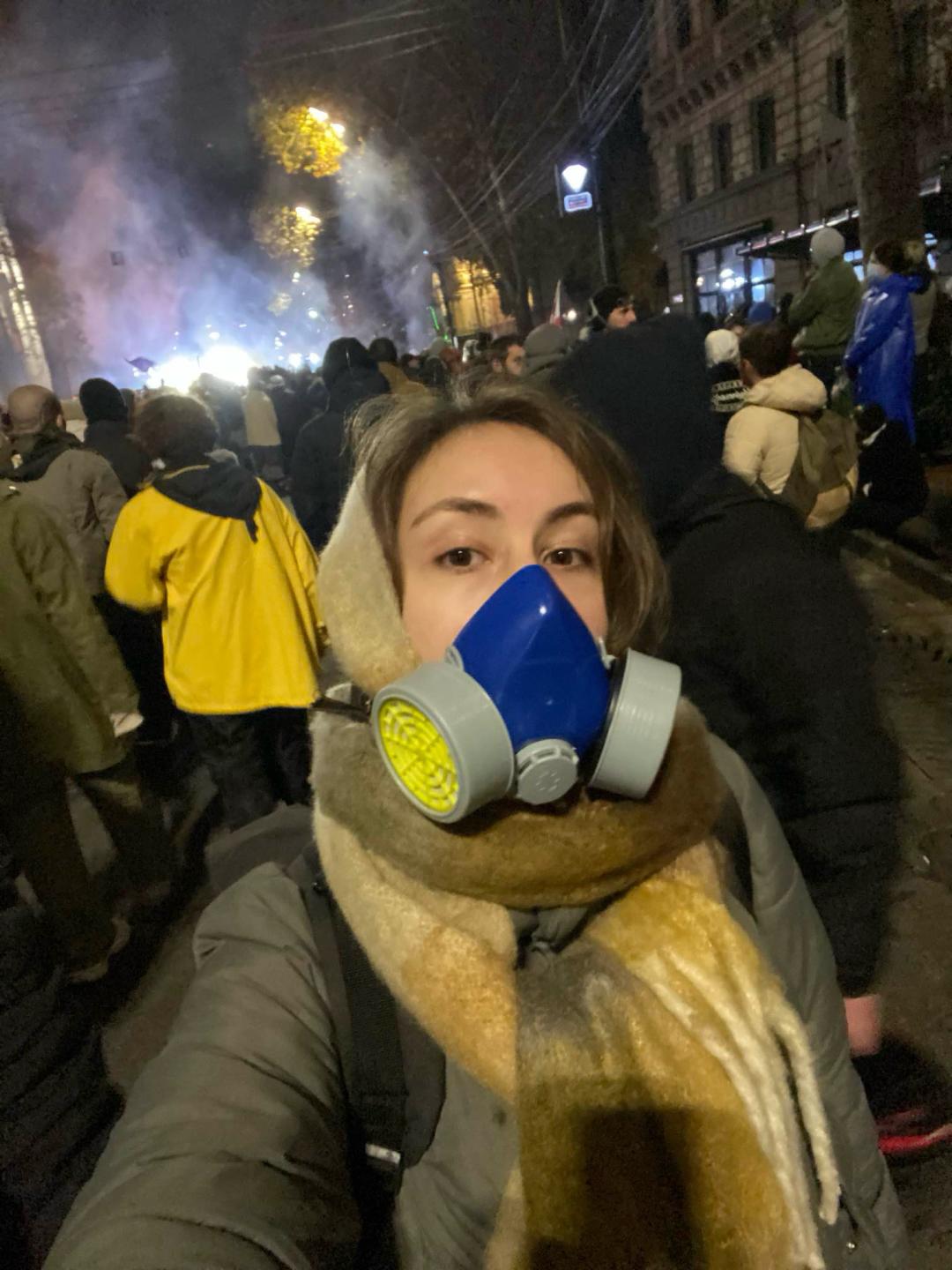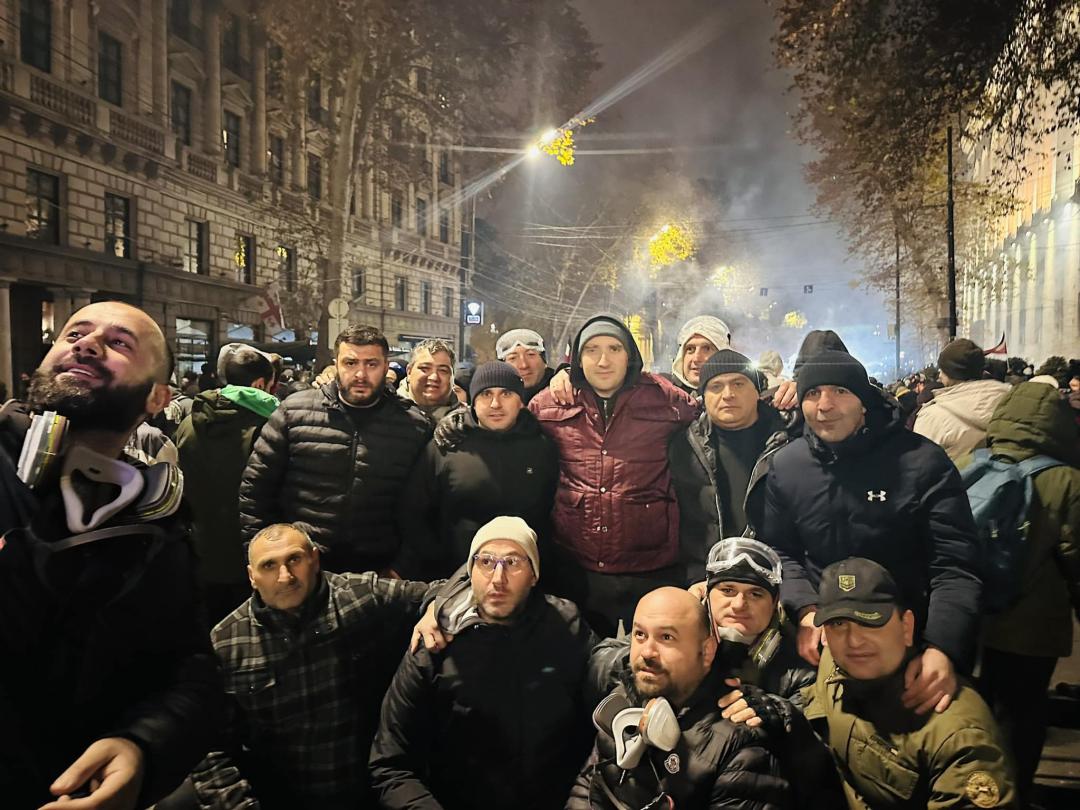
Tears and Tear Gas: Witnesses Expose Brutality as Protests Erupt Over Shelved EU Membership Talks

By Hugh Bohane
Georgian citizens erupted in protest over the weekend following the government's controversial decision to shelve EU membership talks. The demonstrations, now in their fifth day, have been marred by mass arrests and police violence, with 150 demonstrators detained and more than 50 journalists injured.
A Lucky Escape
Seventeen-year-old activist Nikoloz Darsania narrowly escaped death from a water cannon and exposure to unknown gases.
"Then my friend and I dragged each other to the ambulance. I couldn't breathe or open my mouth. If I was alone, I would have died," he said.
After being hit by the water cannon, Mr Darsania took cover in a Japanese language center and eventually found refuge in an ambulance already crowded with injured protesters. Paramedics had to share medical equipment, including oxygen masks, amidst the chaos.
"As the ambulance began to drive off, the security forces shot tear gas at us," he added. "My parents were really worried."
Water Cannons Containing a Mystery Substance
Mariami Japaridze, another young protester, attended the protests and witnessed the escalation.
"Police and riot police/robocops started mobilizing from the very beginning. At first, there were minor clashes between protesters and the police, where police were extremely aggressive towards protest participants," she said.
Ms Japaridze noted that the riot police were quick to use water cannons and pepper spray, followed by gas.
"They don't just use water; it seems like it is mixed with pepper spray or something, as it burns the skin and eyes."
She also observed that riot police were particularly aggressive towards journalists.
"At least 22 of them were attacked in one night, and 43 people were arrested," she said.
Unprecedented Violence
Ms Japaridze described the violence as unprecedented. Her friend was attacked by riot police after being followed into a pharmacy.
"Police used an excessive amount of tear gas to disperse crowds of nearly 200,000 people on December 1. There was suffocation; we couldn't move fast, and gas canisters were landing everywhere," she said.
According to the Ministry of Internal Affairs, 107 activists were arrested on November 30. Some people are still searching for friends and family members.
"We are advised not to walk alone because it's easier for them to capture you," Ms Japaridze said.
Expert Analysis
Irakli Pavlenishvili, a politician and the deputy general secretary of the United National Movement, offered his perspective on the government’s decision and its broader implications for Georgia’s democratic future.
"The government is led by a criminal gang connected to Russian interference. Their influence is growing, and they’re trying to use Georgia’s economic system to avoid sanctions from Western countries," he said.
Mr Pavlenishvili believes the Georgian Dream government's goal is to intimidate people but thinks they have only empowered citizens and made them angrier.
"They are beating people, not just arresting them. This is to punish them for being at demonstrations. Journalists are beaten while doing their jobs, and protesters are beaten even after they're captured," he noted.
He sees the protests as a last stand against Russian influence in Georgia.
"The battle is between the Georgian people and an oligarch who has captured state institutions. I believe this winter, the Georgian people will win."
International Support
Mr Pavlenishvili emphasized the importance of international support for Georgia’s future.
"For us fighting for our European and Western future, international statements of support are very important. Sanctions on those committing crimes, human rights violations, and corruption are crucial. Georgian people are freedom-loving.
“We were the first in the Soviet Union to demand independence and the first to have a colour revolution. These people deserve a European future and will prevail," he said.



See Also


From Neorealism to Neoliberalism: Armenia’s Strategic Pivot in Foreign Policy After the Nagorno-Karabakh Conflict

Georgia and Russia: New Turn in Bilateral Relations

3+3 Initiative as a New Order in the South Caucasus

Economic Cooperation Between Armenia and Georgia: Potential and Challenges Ahead

